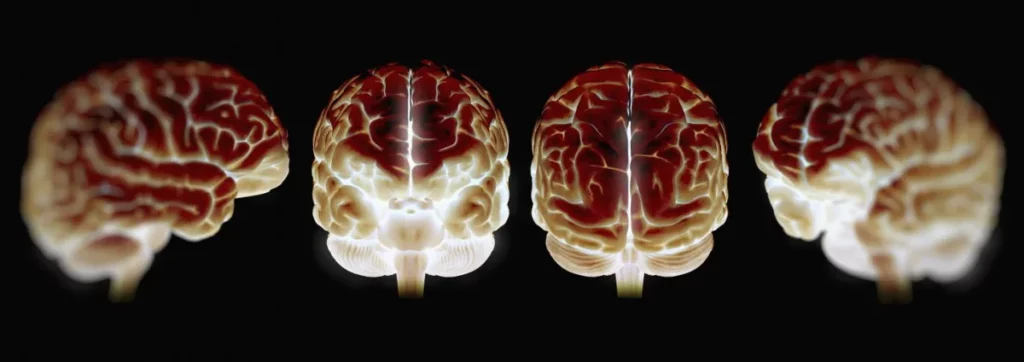From diet upgrades to mental exercises, scientists detail new ways to keep your mind fresh.
Krystal L. Culler, a certified brain health gerontologist, says that one myth of aging is that we need less sleep as we get older, but in reality, we should still aim for seven to eight hours of uninterrupted sleep per night.
As any of us who regularly wander into a room and forget why we came can tell you, our brains (like every other part of our bodies) are continually aging. This aging is due to the breakdown of bodily maintenance, meaning it’s harder to heal the day-to-day wear that our bodies take on.
But the brain has an advantage. “The human brain is so adaptable that it reacts to changes not only in its environment but also within itself. [Unlike most of your other organs] your aging brain is capable of compensating for breakdowns in its own system as you get older,” says John Medina, a developmental molecular biologist and author of the book Brain Rules for Aging Well.
This is good news for all of us who are concerned with maintaining our brain function well into our senior years. Diet, exercise (both mental and physical), sleep, and even friendships have been proven to play a part in keeping our brains healthy.
Eat this, not that
Some research suggests that dementia is an inflammatory process. It makes sense then that an increased use of NSAIDs or anti-inflammatory medicines have been shown to reduce risk.
Barry Sears, a biochemist and author of The Zone Diet, disagrees with the use of NSAIDs however, which he says can contain unwanted side effects. Instead, he suggests concentrating on natural anti-inflammatories: “What you want for brain health is the resolution of neuroinflammation and that can only be accomplished through increased production of hormones known as resolvins that are generated from omega-3 fatty acids.”
Jennifer Stagg, a biochemist turned naturopathic physician and author of Unzip Your Genes, agrees. “Omega 3s are critical for brain health and are thought to delay cognitive aging. [They] reduce inflammation, which is also a key mechanism that underlies most chronic disease,” she says. She suggests a diet rich in olive oil, nuts, and seeds. Vitamin D, she says, is also important for cognitive health.

Are there foods you should avoid for better brain health? Stagg says yes. “High glycemic foods can create an inflammatory cascade,” she notes, and therefore may be bad for brain health. This includes food with high sugars, such as candy, honey, white potatoes, corn, and white bread.
Get quality sleep
About 70 million Americans report problems with their sleep. It is no wonder why the CDC declared it a public health problem.
Krystal L. Culler, a certified brain health gerontologist, says that one myth of aging is that we need less sleep as we get older, but in reality, we should still aim for seven to eight hours of uninterrupted sleep per night. Parinaz Samimi, MPH, MBA agrees. “As people age, their ability to produce melatonin naturally declines, so good sleep hygiene is key to maintaining mental function,” she says.
Quality of sleep is important too. According to a study out of Canada, fragmented sleep, or frequent arousals through the night, in older adults has been directly linked to Alzheimer’s Disease and the speed of cognitive decline.
Socialize well and often
Loneliness has also been associated with an onset of dementia in older adults. Keeping your social connections vibrant, active, and healthy helps prevent cognitive decline, according to Medina. He also suggests that older people cultivate relationships with younger generations, as it reduces stress, anxiety, and loneliness. Excessive loneliness, he says, can cause depression, which can damage the brain.
Keep your heart healthy
Culler says that the brain and the heart are connected and in constant communication with each other. “Unhealthy lifestyle habits such as inactivity, poor diet, isolation, emotional stress and smoking to name a few are counterproductive to overall health and wellness and impact the heart and brain in many ways such as: narrowing blood vessels, overall reduction of blood flow to the brain, and hardening of the arteries to the brain and the heart,” she says.
So: a healthy heart can equal a healthier brain. Cardiovascular disease has been linked to dementia, so it proves wise to keep your heart healthy by engaging in frequent physical exercise. Medina suggests dancing as the perfect exercise for seniors—it provides both cardiovascular exercise and social interaction.
Exercise your brain
You go to the gym to work out, but do you have a fitness routine for your brain? Just like at the gym, you have to change up your brain’s exercise routine regularly. “When it comes to cognitive fitness, people should aim for brain exercises that are challenging, novel, and new,” says. Culler.
Many people are under the false impression that doing Sudoku or a crossword puzzle every day will help them maintain or improve their brain health, but this is only true if they are new to it. Your brain should not be on auto-pilot.
Culler says to try simple things throughout the day: “Test your non-dominant hand with daily tasks such as brushing your teeth or eating a meal, shift what hand you wear your watch on, or take a different route home today.” She suggests that you exercise your mind for at least 15 to 20 minutes per day.
Although genetics play a big part in how our brains will age, luckily for all of us, the brain is very plastic. By focusing on the things that we can do to improve and maintain our brain health, we have an opportunity to enhance our aging and enjoy better cognitive function—perhaps for years to come.

